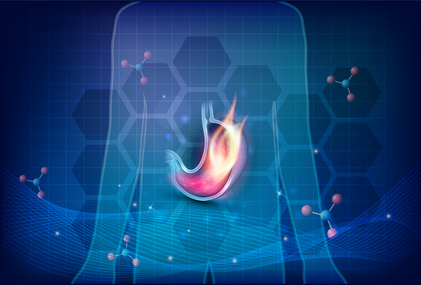
September 9, 2019
Gastroesophageal Reflux Disease, or GERD for short, is a condition wherein the muscle between the esophagus and the stomach (lower esophageal sphincter) loses its tautness, relaxes inappropriately, or weakens due to certain reasons. This leads to the reflux of food and stomach acids into the esophageal tract, which can cause tremendous discomfort, nausea and vomiting. In advanced cases, stomach acids can even cause tissue damage and inflammation in the esophageal tract. Continuing on the subject, in this blog post, we present the possible non-surgical and surgical treatment options for GERD.
Non-Surgical Treatments for GERD
Most cases of gastroesophageal reflux disease can be treated through diet and lifestyle changes. Some basic triggers such as coffee, alcohol, spicy food, garlic citrus foods etc can be avoided. In addition to these precautions, obese patients suffering from gastroesophageal reflux disease would be advised to knock off some weight as this can help ease the condition. Even smokers may be advised to kick the habit in a bid to treat this condition. Not eating for a few hours prior to sleeping and even reducing portion size could be pivotal in controlling this disorder.
Should these steps prove inconclusive, your medical expert may put you on some long-term medication to treat this condition. In the event that even these medications do not have the desired effect, and you are still suffering from the symptoms of GERD, you may be advised to explore the option of an Anti-Reflux Surgery in Dallas.
Anti-Reflux Surgery as a Treatment for GERD
For those with serious complications from GERD and the failure of all other treatment options including diet and lifestyle changes, surgery may be the last treatment option to consider. Especially, if your GERD issue is beginning to irritate your esophagus causing inflammation, ulcers and tissue damage, surgery may be the best option.
There are various procedures and approaches in an Anti-Reflux Surgery in Dallas. Fundoplication is one of the most commonly adopted approaches wherein the lower esophagus sphincter is strengthened through either open surgery or a laparoscopic method. Rarely an open approach is required Another commonly used approach when fundoplication is not advisable is LINX, a magnetic device that sits around the lower esophageal sphincter and limits reflux into the esophagus from thestomach.
The Final Word
If you are considering Anti-Reflux Surgery in Dallas, be sure to consult your medical expert on whether your medical parameters are conducive to this surgery. If you suffer from any ailments related to heart disease, respiratory issues, high blood pressure and diabetes, which increases the propensity of bleeding, you may not qualify for this surgery. Additionally, elderly candidates and obese patients need to undergo comprehensive medical analysis before qualifying for this Anti-Reflux Surgery in Dallas.
To have all your questions answered on GERD, it’s treatment options and undergoing an Anti-Reflux Surgery in Fort Worth, consult the experts at DFW Bariatrics and General Surgery. Book an appointment online or simply call 469-620-0222.
